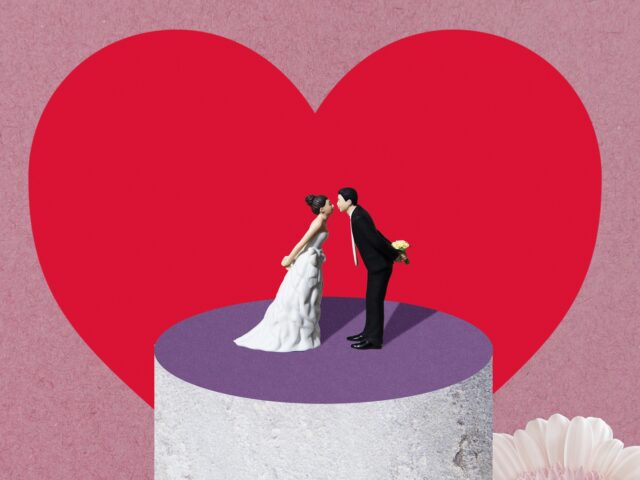Welfare handouts are harming marriage in the United Kingdom by creating perverse incentives that see the less-well-off get more benefits by having children out of wedlock, while wealthier couples who don’t rely on state aid are twice as likely to be married before having children, a foundation has claimed.
The UK government’s policy of favouring single people, in which parents who live alone have greater entitlements to receive welfare and other state benefits, has resulted in only a small minority of children born to the poorest parents raised in two-parent households, a report from the Marriage Foundation has found. Conversely, children born to wealthier parents are privileged even further, as such households can afford to withstand anti-family policies and become married before having children, therefore giving them the ability to raise their children in a more positive environment to foster functioning members of society.
‘Anti-Family’ Conservatives Ensnaring Thousands More in Middle-Class Households in ’96 Per Cent Tax Trap’: Reporthttps://t.co/wJKum8ASN2
— Breitbart London (@BreitbartLondon) December 28, 2022
This decision by the government to effectively punish less-well-off couples who decide to marry and live together by giving them fewer handouts than an equivalent broken-up family has had real-world impacts, according to a report on the Foundation’s claims in the Daily Telegraph, which notes in the United Kingdom in 2021 seven in ten — over two thirds — of new parents from ‘highly paid’ families were married. Among those on ‘lower incomes’, that fell to just one-third.
The Foundation has been researching marriage for over a decade, and while rates of marriage for new parents have fallen over that time across the board, that fall is more likely a collapse among the less wealthy. While the discrepancy could be explained away as simply a matter of having the resources to marry, in fact, The Marriage Foundation points the finger at what it calls a “couple penalty” in the welfare system. The way the government calculates tax credits and therefore pays benefits may not mean much to high earners, but to families who rely on state handouts to keep their heads above water — and even more earners than ever are now net takers of benefits — that discrepancy in payout could be enough to persuade parents not to marry, and even to live apart.
Politicians are deeply hypocritical in this regard, the report claims, because they are overwhelmingly married and enjoying the benefits of that, while never speaking in favour of the institution in public and actually disadvantaging it through the tax code and benefits system. Speaking of the findings, former High Court Judge Sir Paul Coleridge said: “You might think that senior politicians, almost all of whom are married, would want to make sure the benefits of marrying are unapologetically advocated by them and made available to all, regardless of a couple’s bank balance. But what have we heard in the last decade on this appalling state of affairs? A prolonged and deafening silence. This must change.”
Hungary Exempts Mothers Under 30 from Income Tax, Seeks to Boost Births Instead of Migration https://t.co/gPK687L5DS
— Breitbart London (@BreitbartLondon) January 2, 2023
Sir Paul also pointed to the known benefits of marriage, particularly to the children who have the privilege of growing up in more stable, on average, homes, saying: “[the] real tragedy is the less well off have been hit the most; the less money you have, the less likely you are to marry. And they are surely the sector who would benefit most from the extra family stability which marriage invariably brings… marriage remains universally popular, with nine in 10 young people across all of society aspiring to marry, regardless of income or any other factor. Yet when we look at who actually ties the knot, the answer is, predominantly the rich. So, the simple and real tragedy is the less money you have, the less likely you are to marry.”
These factors are just one of several ways the government appears ever more prejudiced against what some might call traditional families. The Conservative Party has demonstrated itself to be basically hostile against single-breadwinner families, decrying mothers and carers as ‘economically inactive’, and cruelly punishing single-income families by taxing them to a considerably higher degree than like-for-like dual-income households.
And while those taxes are bad enough already, they are rising and will continue to rise for most of the rest of the decade, with the government having weaponised inflation against middle-income families in a process known as fiscal drag.
'Stealth Taxes' on Middle Classes Will See Families £40,000 Worse Off Over Next Decade: Report https://t.co/qH7OIshnOy
— Breitbart London (@BreitbartLondon) December 27, 2022

COMMENTS
Please let us know if you're having issues with commenting.